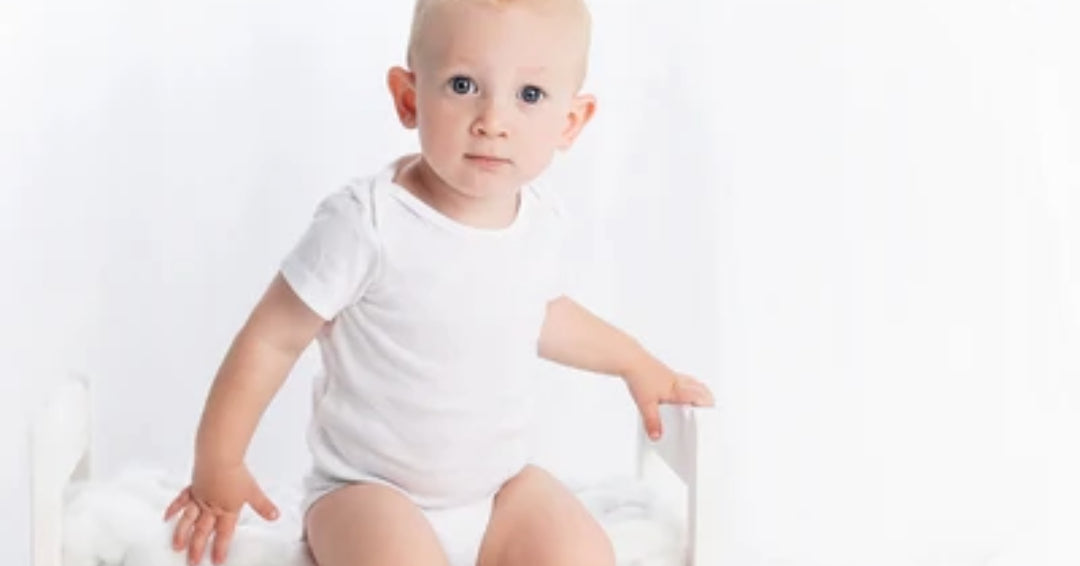
Potty Training Solutions That Actually Work
Potty training can feel like a frustrating game of tug and war. Just when a parent has the upper hand and seems to be making progress with their toddler's toilet habits, the little tot takes control and yanks back on that rope. The harder the parent pulls on it, the more resistant the toddler becomes to using the latrine. Understanding why your stubborn child is not cooperating will help everyone involved, minimize the level of frustration, and help you get there faster. For some little ones, there is an actual fear of pooping on the potty. In these cases the process is more complicated than simply planting their little tushes on a toilet and expecting results. Just remember that eventually the phase will pass with a little bit of extra time and patience.

Problem: Using the potty takes time away from a more interesting activity. Going to the bathroom can feel like it takes forever for toddlers with very short attention spans. Just five minutes seems like an eternity for little ones watching a show, playing with toys, running around on the playground, or doing anything at all that is more interesting than disappearing alone to relieve themselves.
Solution: Encourage your toddler to go to the bathroom before engaging in a new activity. Don't start a television show until your child has at least attempted to use the toilet. If friends are coming over to play, plop your little one down to do the deed before anyone arrives. Always hit up the bathroom at home before heading to a playground or playdate. Try to use transition periods between activities wisely, even if your child isn't showing signs of having to go.

Problem: The potty is too far removed from everyone else in the house. Little ones like to be around mommy, daddy, siblings, and anyone else who is around. Bathrooms can feel like miles away from all the activity. Toddlers who are afraid of missing out may be more prone to accidents. Also, sometimes little ones feel anxious being alone in the loo or separated from their mom or dad.
Solution: Buy a training potty that your toddler can move around the house. It's normal for your child to still want some privacy, so it can be placed behind a couch, a curtain, or a corner a little further away from things. As long as the child can still see everything going on, the process will be easier. Here are some of the best toddler potties that are colorful, portable, and just the right size.

Problem: Diapers are actually quite comfortable. When a child wets a diaper, it causes very little, if any, discomfort. The technology built into diapers allows for all the moisture to be absorbed so the toddler's bottom doesn't feel wet. There is not a lot of motivation to go to the toilet when the diaper is, oftentimes, not considered a nuisance.
Solution: Remove the diaper. The first time diaper-free little ones wet their pants may just be their last. Wet underpants don't feel good. Neither does a pair of pants that are soaked in urine and causing chafing on the legs. So don't wait until your child is fully trained to take the diaper away. You may have more laundry in the short term, but it will speed things up quite a bit. Also, think about taking a shopping trip for big kid underpants or reading funny kids' books about underwear that showcase characters who are proudly show off their new garments.

Advice When Toddlers Refuse to Potty Train
- Age Varies: Keep in mind that the age to begin potty training varies greatly from child to child. The range is anywhere from 18 to 36 months. It's better to wait until your child is showing signs of readiness rather than push the issue too soon. By doing so, you'll reduce the amount of time it takes to complete the process.
- Readiness Signs: Watch your child's behavior for potty readiness cues. Signs may include a child who promptly wants a diaper changed after pooping or expressing an interest in the toilet. Toddlers who verbalize that they are about to pee or poop in their diaper are also signaling that they are ready to be trained. For little ones who are lagging behind, reading toddler potty training books with relatable characters may be just the boost a child needs.
- Accidents Happen: Remember that it is normal for a toddler to take a few steps backwards and have frequent accidents. Parents may feel frustrated by this behavior and especially volume of dirty laundry that is generated. Just remember that this is normal. Accidents often occur when toddlers are preoccupied or distracted playing. Just keep moving forward and try not to get discouraged.
- It's Not a Race: The length of time to cross the finish line varies from child to child. Some toddlers master the toilet almost immediately with zero accidents once they are diaper free. Others may take an entire year before parents can breath a sigh of relief and ditch the diaper bag. Just remember that all children will eventually get there!
Advice for Handling Toddler Growing Pains

